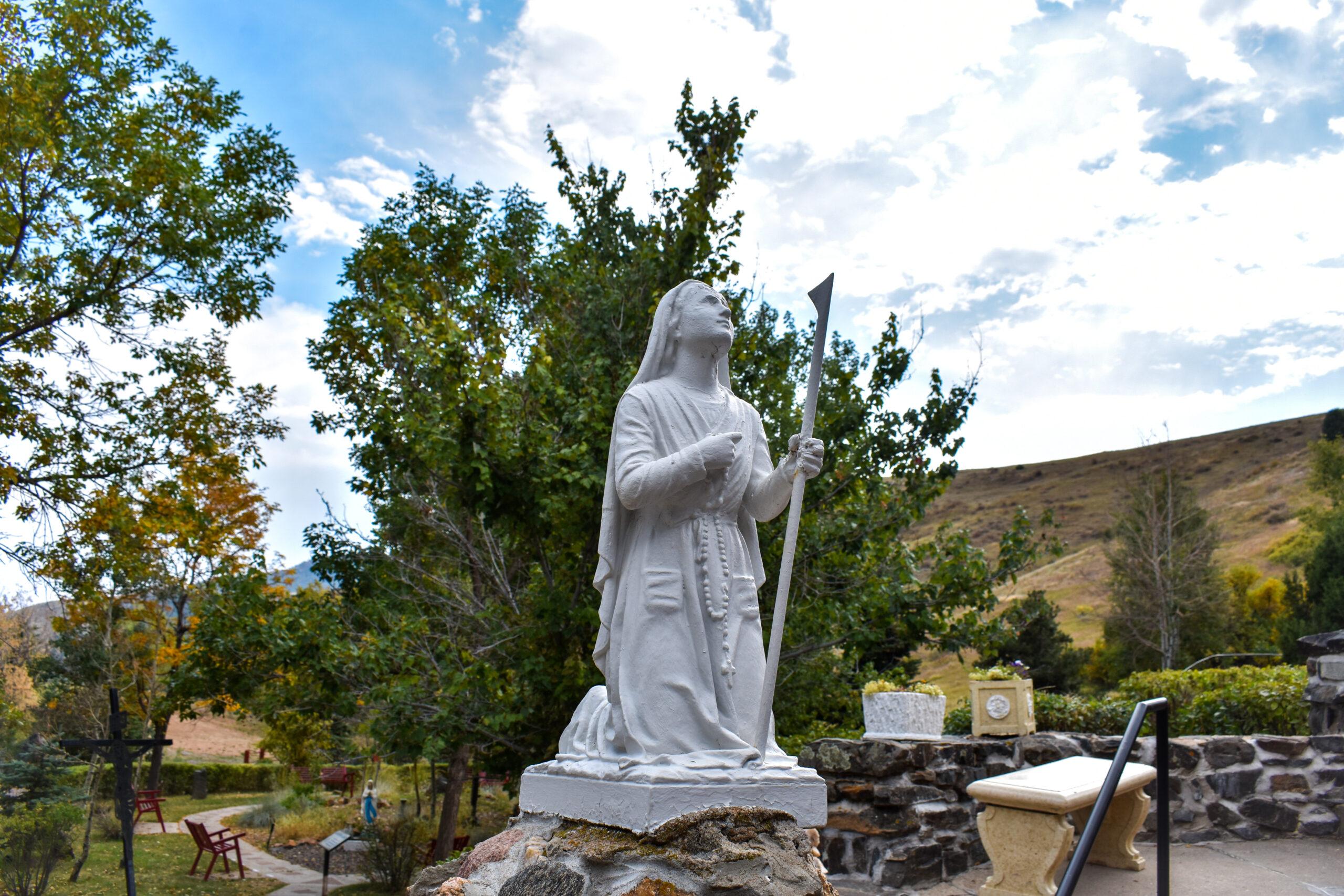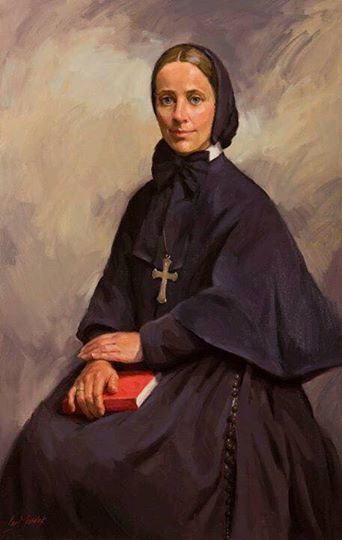
Editor's note: we have corrected the headline of this story. The first Monday of October is "Cabrini Day," not "Mother Cabrini Day." We have also corrected the name of the religious order she helped found.
A three-decade struggle to do away with Columbus Day in Colorado reaches an end Monday when the state celebrates its first-ever Frances Xavier Cabrini Day. In March, Governor Jared Polis signed a bill to replace Columbus Day with one to recognize the humanitarian contributions of Cabrini.
The new holiday is celebrated on the first Monday of October, the month in 1909 that Cabrini became a naturalized US citizen.
For Adams County representative Adrienne Benavidez, a Democrat and one of the bill’s prime sponsors, the bill signing was a victory.
“Columbus is not the type of person we should venerate in this state because of the atrocities that he directly committed or committed under his watch,” Benavidez said. “And so we have been working a long time to repeal Columbus Day.”
Lawmakers in Colorado’s General Assembly have introduced 6 bills to repeal or replace Columbus Day as a state holiday since 2016, with four of them sponsored by Benavidez. However, arguments for removing the holiday are much older.
The American Indian Movement of Colorado has been campaigning since 1989 to remove Columbus Day, arguing the holiday celebrated the famous explorer as a hero while ignoring Columbus’ extermination of Indigenous populations and cultures, as well as his participation in the slave trade.
Several states across the US have stopped celebrating Columbus Day and some have replaced it with Indigenous Peoples’ Day, honoring the resilience of native peoples in the face of centuries of oppression. The cities of Denver and Boulder also recognize Indigenous People’s Day. However, according to Benavidez, the support wasn’t there to make such a shift statewide.

“That was one of the alternatives we had tried and that did not go well, it didn't pass. It actually got the least votes of any of the various things we tried,” she said.
For Benavidez, getting rid of Columbus Day was her main focus, but she said it was hard to get people on the same page about how to do it. In earlier bills, she tried to replace Columbus Day with Colorado Day in August or Election Day in November. But some people opposed moving the holiday to a different month.
Indigenous and minority communities were unhappy with the holiday remaining on the second Monday in October, out of concern it might still be informally celebrated as Columbus Day. What the problem required was a compromise, and the organization Coloradans for Cabrini Day, headed by Alisa DiGiacomo and Steve O’Dorisio, took on the challenge.
“30 years of conflict about Columbus Day was something that was pitting people, very good people, against each other,” O’Dorisio said. “We were able to find a compromise that people felt was good enough to get behind.”
Frances Xavier Cabrini, an Italian-American immigrant, arrived in Colorado in 1902. She founded the Mount Carmel convent and grade school before also opening the Queen of Heaven Orphanage in Denver. Cabrini cared for children of all ethnicities, and was especially devoted to the plights of immigrants in her community.
Over her life, she would found 67 institutions throughout North, South, and Central America as well as in Europe. She’s also a founder of the Institute of the Missionary Sisters of the Sacred Heart of Jesus.
Cabrini became the first American citizen to be made a saint in 1946 by the Catholic Church and Colorado’s decision to honor her this year makes her the first woman to be recognized with a paid state holiday in the U.S. (Susan B. Anthony and Rosa Parks have both received local observances, but so far neither has a paid holiday in their honor).
“To me, it really is about those key principles of kindness, compassion and community,” says DiGiacomo. “we can all find individuals that we can recognize for their humanitarian efforts of helping the poor, helping kids and orphans and helping immigrants. That's what I think the Cabrini day bill was able to create.”









